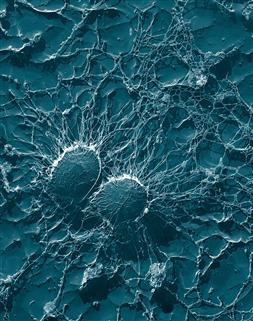Infertility
International Infertility Counseling Organization
We have the best source for complete information and resources for International Infertility Counseling Organization on the Internet.
Cushing disease Increased cortisol levels cause a negative feedback on the hypothalamus, decreasing GnRH release. The procedure is performed in an outpatient setting in the vast majority of cases, and recovery time can be as little as a few days. Each day of abstinence is typically associated with an increase in semen volume of 0. Gynecological history, including operations and medical treatment. The search included meta-analyses, randomized controlled trials, clinical trials, and systematic reviews. Opinion: Microsurgical TESE and the Distribution of Spermatogenesis in Non-obstructive Azoospermia. (PDF, 5 MB)Human Reproduction, 2000.
2) Ovulation disorders: Normal and regular ovulation, or release of a mature egg, is essential for women to conceive naturally. Maternal age Infertility due to age is one of the most common causes of female infertility. A majority of the results are in the normal range here which is why it is also called idiopathic sterility. After in vitro fertilization, your doctor transfers the fertilized eggs into your uterus.Male infertility isn't something you hear much about on the news, so you may be surprised to know that male infertility is almost as likely as female infertility to be involved in a couple's inability to achieve pregnancy. However, a survey has suggested that the 3 days most likely to offer a fertile window are the 2 days before ovulation plus the 1 day of ovulation. Gonadotropin-releasing hormone (Gn-RH) analogs: These can help women who ovulate too early—before the lead follicle is mature—during hmG treatment.
More Info About International Infertility Counseling Organization

Below are Some Even more Information on Prashanth Infertility Center
With this treatment, the patient experience spermatogenesis, and therefore, it has the chance to have offspring if he wants to. The idea is that for women beyond age 35, every month counts and if made to wait another six months to prove the necessity of medical intervention, the problem could become worse. Radiation therapy: If this is aimed near the reproductive organs, it can increase the risk of fertility problems. In addition to the alteration of menstrual periods and infertility, chronic anovulation can cause or exacerbate other long term problems, such as hyperandrogenism or osteopenia. Secondary infertility When a woman is unable to bear a child, either due to the inability to become pregnant or the inability to carry a pregnancy to a live birth following either a previous pregnancy or a previous ability to carry a pregnancy to a live birth, she would be classified as having secondary infertility.
More Resources For Prashanth Infertility Center
Aromatase inhibitors Aromatase inhibitors (letrozole, anastrozole) inhibit the action of the enzyme aromatase, which converts androgens into estrogens by a process called aromatization. Oligozoospermia refers to a low sperm count under 20 million per milliliter. Prader-Willi syndrome is caused by a disorder of genomic imprinting with deletions of paternally derived chromosome arm 15q11-13. Illegal drugs: Consumption of marijuana and cocaine can lower the sperm count. ICSI with Epididymal and Testicular Sperm in Azoospermic Men. (PDF, 2 MB) From Treatment of Infertility: The New Frontiers, 1998.
Below are Some More Resources on International Infertility Counseling Organization
Ovulation problems can be a result of: polycystic ovary syndrome (PCOS) thyroid problems – both an overactive thyroid gland and an underactive thyroid gland can prevent ovulation premature ovarian failure – where a woman's ovaries stop working before the age of 40 Scarring from surgery Pelvic surgery can damage and scar the fallopian tubes, which link the ovaries to the womb. If a cause for your fertility problems hasn't been identified, talk to your doctor about the next steps. Your doctor will carry out a series of tests to diagnose what’s causing your fertility difficulties. There are many reasons why you may have problems conceiving, including: Your sperm does not have the concentration, motility or shape required to conceive Existing medical conditions that affect your fertility, such as issues with sperm production or duct obstructions Your sperm may not be strong or healthy enough to fertilise your partner’s egg As your partner gets older, her fertility quickly declines3 Depending on the cause, your doctor will recommend a treatment path for you. Afterward, radiographs are taken and the contrast material can be seen in the abdominal cavity if the tubes are pervious. The following hormones can be identified in the blood among others: FSH, LH, estradiol, prolactin, testosterone, DHEA-S and the thyroid hormones. Varicocele: Surgically removing a varicose vein in the scrotum may help. They can include: Changes in hair growth Changes in sexual desire Pain, lump, or swelling in the testicles Problems with erections and ejaculation Small, firm testicles When to See the Doctor If you are under 35 and have been trying to get pregnant without success for a year, see your doctor. After one year of having unprotected sex, about 15 percent of couples are unable to get pregnant. Around 1/3 of infertility cases are caused by fertility problems in men4 1/3 of infertility cases are caused by fertility problems in women4 1/3 of infertility cases are caused by a mixture of male and female problems, or by problems that cannot be determined4 Infertility doesn’t necessarily mean that you won’t ever have children, but you may need the help of fertility treatment to conceive.
Previous Next
See also
Infertility Clinics Seattle
Infertility Clinics New Jersey
Infertility Quit Job